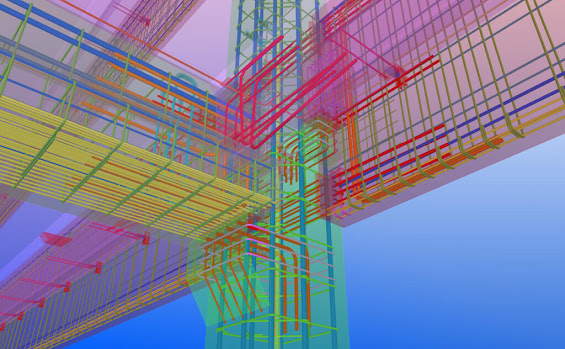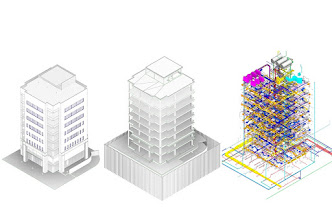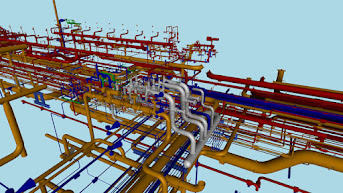Maximizing Cost Savings with Precast Panel Detailing Services.
Greetings, bloggers! Today, we'll discuss how using precast detailing outsourcing services can help you save money. For many companies and building ventures, saving money is of utmost importance. Using Precast Detailing Outsourcing Services is one efficient technique to cut costs.
The original phrase refers to a development in the USA where an increasing number of Americans prefer to contract out the process of producing thorough blueprints and drawings for precast concrete panels. To make these panels and use them in construction projects, detailed designs are required.
The task of producing precise designs for concrete panels used in architecture is increasingly frequently outsourced in the USA. This has a big financial impact. By cutting expenses, hiring a qualified company to complete this work benefits builders, contractors, and project owners.
What is Precast Panel Detailing?
Precast panel detailing is similar to creating an extremely thorough guidebook for creating concrete structure panels. Consider it a step-by-step manual that contains all the measurements, shapes, and other crucial information to guarantee that the panels are created precisely as instructed and are simple to use in construction projects. It's crucial because without them, faults could occur and the panels would not fit or function properly during building. So, it's an essential step in the construction process.
You can take the following actions to maximize cost savings while using precast panel detailing services in construction:
Outsource the Work:
To efficiently create detailed drawings for precast panels, specialized detailing companies have a wealth of experience and specialized software tools. By contracting out this work, you can access their skills without having to pay for their hire and training.
Use Standard Designs:
Standardized designs are prepared models for conventional precast panel arrangements. Utilizing them lessens the need for expensive and time-consuming specialized detailing. Standard designs are tried and true, which frequently results in more effective production techniques.
Design for Efficiency:
Frequently work with the detailing service to develop panel designs that are cost-effectively optimized. This could entail producing panels with dimensions that reduce material waste, making sure they're portable and simple to install, and streamlining production procedures.
Leverage Technology:
Numerous components of the detailed process can be automated using cutting-edge software and technology, increasing accuracy and speed. Additionally, by generating the precise amounts of materials required, these systems can lower overordering and waste.
Quality Control:
During the detailing process, strict quality control methods can be implemented to avoid mistakes and discrepancies. It's important to spot errors as soon as possible because repairing them after construction might be very expensive.
Smart Material Choices:
Quality and cost-effectiveness must be balanced. Selecting materials that are both high-quality and affordable can result in long-term savings because they can need less upkeep or replacement.
Build Supplier Relationships:
Building trusting connections with precast panel suppliers might result in volume discounts and advantageous payment arrangements. Over time, doing business with a supplier consistently and reliably might result in cost savings.
Streamline Processes:
Review your production and detailing procedures frequently to find and get rid of inefficiencies. This could entail streamlining processes, cutting back on physical labor, or investing in new equipment to boost output.
Effective Project Management:
Building assignments are kept on schedule and under budget with the help of effective project management. Because delays and interruptions can be expensive, a well-organized project can save a lot of money.
Plan Long-Term:
Plan for several projects or panels at once if at all possible. By grouping projects, you can benefit from economies of scale, whereby larger orders result in cheaper production costs per unit.
By carefully examining and following these tactics, you can not only maximize cost savings but also improve the overall efficiency and quality of your building projects when using precast panel detailing services.
In summary, precast detailing services provided by outside professionals provide various benefits for builders, employees, and project owners. These include spending less money, ensuring sure everything is done correctly, completing projects more quickly, and working in better teams. Project owners can accomplish their objectives quickly and affordably by working with a reliable and skilled business for this task. Precast panel detailing services are like an incredibly useful tool for any building project, ensuring that even the most challenging ones succeed.
The following terms represent some of the most crucial ones you should understand while using precast detailing outsourcing services.
1. What is precast detailing?
Precast detailing is the process of creating incredibly precise drawings for the concrete components used to construct things like walls and structures. These concrete components are created elsewhere and then delivered to the building site for assembly.
2. What is the meaning of precast in construction?
Precast concrete is a unique type of material that is created in a manufacturing plant as opposed to on the building site. Similar to using cutting tools to make forms, it is poured into molds. These concrete components can then be combined with other pieces to create something larger, such as an entire building or structure.
3. What is detailing in construction?
Detailing is the process of creating extremely precise plans and drawings that show builders exactly how to create and assemble various building components. The size, materials, and how everything should fit together are all covered in these plans. To ensure that construction is carried out appropriately and safely, detailing is crucial. It's comparable to providing builders with a step-by-step manual.
4. What is the difference between precast and concrete?
Concrete:
Concrete is a building material made at the construction site by combining cement, water, and aggregates like sand, gravel, or crushed stone. It has the benefit of being extremely customizable. Its composition can be changed on-site by builders to satisfy particular project requirements, making it adaptable to different shapes and forms. At the construction site, freshly mixed concrete is poured, molded, and given time to cure (harden) there. Concrete is a popular choice for a variety of construction purposes, from foundations and slabs to pavements and structural parts, thanks to its adaptability and versatility.
Precast Concrete:
Precast concrete, on the other hand, is created in a regulated factory setting. In the factory, concrete is poured into molds or forms, allowed to cure, and then particular precast parts, such as panels, beams, columns, or other structural elements, are extracted. These precast components are created and made following exact specifications, guaranteeing consistency and quality. These precast parts are sent to the construction site after they are finished, where they are joined like building blocks per precise designs.
Check out our latest blogs on the Detailing Services.
Structural Steel Detailing Services



Comments
Post a Comment